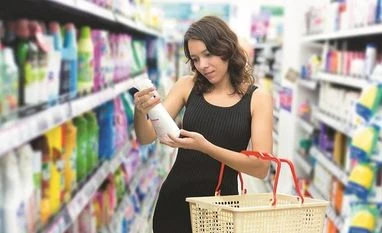Your cleaning costs may go up soon if the Centre goes ahead with a proposal to impose antidumping and countervailing duties on saturated fatty alcohol (SFA). SFA is a key ingredient for making soaps, detergents and shampoos.
These duties will have a major cost impact on producers and users of sodium laureth sulfate (SLS), who manufacture detergents, shampoos and other hygiene-related products, The Economic Times (ET) reported.
The proposed duty ranges between 3 per cent to 30 per cent of the CIF (cost, insurance, freight) value of the consignment.
The Indian Surfactant Group (ISG) had urged the finance minister not to apply the new tariff structure, according to the ET report.
According to the report, the convenor of the ISG, Manoj Jha, wrote a letter to the finance minister Nirmala Sitharaman, saying the proposed duties would make the industry uncompetitive. He further pointed out that this move will also impact the profitability of the companies, which may lead to subsequent job cuts and downsizing in operations.
The letter also said that this move would increase imports of downstream products like SLS and finished goods such as shampoos, leading to loss of business and employment.
Also Read
In February, the commerce ministry's investigation arm Directorate General of Trade Remedies (DGTR), suggested the imposition of the definitive countervailing duty on imports of SFA to offset subsidisation by Indonesia, Malaysia and Thailand in order to protect domestic players.
The DGTR initiated a probe on a complaint by a domestic firm VVF India Ltd alleging that producers and exporters of these chemicals from these three countries got subsidies at various levels.
The probe examined whether the subsidy programmes by these three countries were helping their producers and exporters.
Anti-subsidy or countervailing duties are imposed by countries to protect domestic players against subsidisation from trading partner countries and are allowed under WTO rules.
)